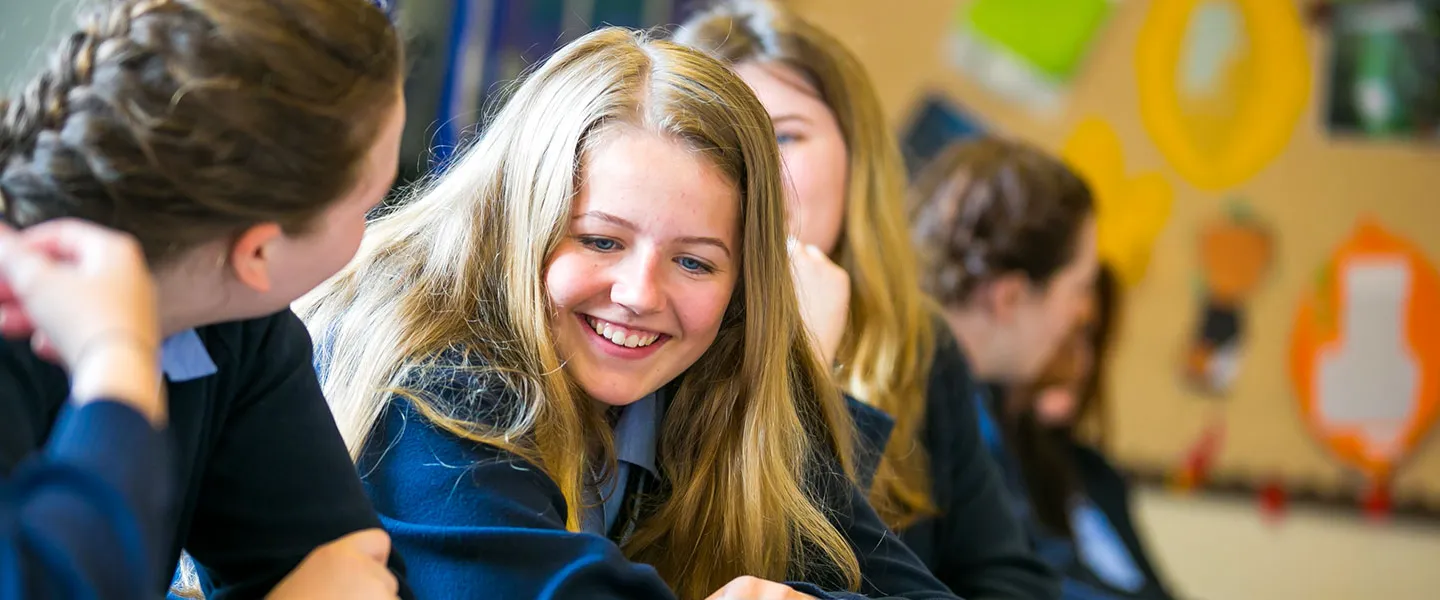Prepping Pupils for Their Music Exams
Music touches us all, but not all stop to listen and appreciate its profound meaning and beauty. Those who enjoy listening to, performing, or composing music have many rewarding career paths available. Whether you want to become a composer or music teacher, obtaining your music GCSE or A-level from The Queen’s School in Cheshire can open many doors. All pupils from Reception to Year 9 are introduced to our varied music curriculum to foster an appreciation for music and help them develop musical skills. From choir to instrumental ensembles, there are many musical opportunities for our students to pursue.
You can find Music GCSE Past Papers at the bottom of this page.
What Is Music? What Music Degrees Are Available?
Music can be vocal or instrumental sounds that combine to create harmony and express human emotions. Learning to read music means being able to read the written signs representing those vocal and instrumental sounds. At The Queen’s School, we believe everyone should have the chance to make music. Instrumental, vocal, and music theory lessons are offered to help students obtain their music GCSE and A-levels. Many of our students further their musical education at the university level. Music degrees can vary from composition to performance and may include exposure to several musical genres to help students increase their knowledge. Many music students also explore music history, education, musical theatre, and drama options. Practical work experience may include anything from performing in choirs, orchestras, and ensembles to working in local recording studios.
What Careers Benefit From a Music qualification?
It’s never too early to think about the type of musical career you’d like to pursue after obtaining your music A-level or university degree. Performing in your school’s choir, orchestra, or musical theatre programme can give you valuable insights into your musical ability and relationship with an audience. Employers may range from touring orchestras and companies to schools, music retailers, the armed forces, and music production companies. Popular music-related careers in the UK include:
- Musicians
- Composers
- Performers
- Music producers
- Sound engineers
- Sound technicians
- Music therapists
- Music teachers
- Choreographers
- Theatre stage managers
- Radio producers
- Talent agents
- Special effects technicians
- Private tutors
- Marketing executives
- Events managers
Music Influencers to Follow for Inspiration in the Music Field
Famous musicians who studied music include Paul McCartney, Lady Gaga, Sheryl Crow, and Katy Perry. However, you might be surprised to learn that many famous people studied music before pursuing other careers, including Albert Einstein, former U.S. president Bill Clinton, astronaut John Glenn, and South Park creator Trey Parker. As you begin thinking about pursuing a musical degree or career, it may be helpful to follow music influencers on social media, including local or international musicians, singers, songwriters, DJs, and music producers. Popular female musicians many people follow for inspiration include Beyonce, Rihanna, Taylor Swift, Demi Lovato and Selena Gomez.
Tips to Help You Prep for Your Music Exams
Are you feeling anxious about your music GCSE or A-level exam? Try these expert preparation tips:
- Practice makes perfect, especially in music. Devote time to practising pieces to improve your performance, focusing on your weak spots. Try not to over practice or overthink it, or you may experience performance anxiety.
- Give yourself a dress rehearsal practising your musical instrument in front of friends or family, so you feel more comfortable performing in front of others.
- Study your music syllabus. Prepare yourself for questions an examiner may ask.
- Get a good night’s sleep and eat a healthy breakfast before your exam. Drink plenty of water. You want to feel refreshed and focused, so you give the best performance possible.
- Don’t be late for your exam. You’ll likely want warm-up time to rehearse with a music accompanist prior to the real thing. Getting there early gives you time to work out anxieties.
- Mistakes happen even on the professional level, but don’t let them make you lose your focus. Try to enjoy yourself. You’re there to show off everything you’ve learned and achieved.
GCSE Music past papers:
- GCSE - Eduqas C660QS - Appraising - Morning
- GCSE - Eduqas C660QS - Appraising - Afternoon
- GCSE - Eduqas C660QS - Appraising - Afternoon
- GCSE - Eduqas C660QS - Composing
These are Eduqas approved past papers.
Why Choose The Queen’s School for Your Musical Education?
There are numerous benefits to attending a girls’ school like The Queen’s School. As we knock down gender stereotypes, we prepare our pupils to think independently, collaborate confidently, and aspire globally. Queen’s girls are given a chance to forge their own academic paths for success. Our music curriculum is supported by various extracurricular opportunities, including junior and senior choirs, a chamber choir, junior and senior orchestras, a ukulele group, and various chamber ensembles. We also host an annual Queen’s School Festival of Music, allowing advanced music students to perform and receive professional feedback. Many of our alumni have gone on to study musical degrees in various disciplines.
We’d Be Delighted to Welcome You/Your Daughter to Our Programme
We would love to welcome your daughter to The Queen’s School. You may register online for our Entrance Assessment or Entrance Examination. Entrance Assessments for our Lower and Senior Schools typically occur in January, but we can work with you on mid-year entries. Should you have any questions about our curriculum or registration fees, please contact us directly. Be sure to ask about our open events and Virtual School Experience to get a glimpse of a Queen’s education in action.
